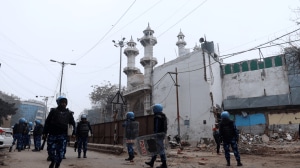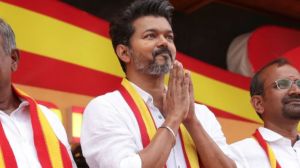That Noble American, Warts and All
...

John F. Kennedy, at a White House dinner honoring Nobel Prize winners, famously said: 8220;I think this is the most extraordinary collection of talent, of human knowledge, that has ever been gathered together at the White House, with the possible exception of when President Thomas Jefferson dined alone.8221;
Jefferson wanted only three things to be engraved on his gravestone 8212; 8220;Author of The Declaration of American Independence, of the Statute of Virginia for religious freedom, and Father of the University of Virginia.8221; There is no mention of the fact that he was the first secretary of state of the US, its second Vice-President, and the third president. Nor that he had been an ambassador to France, and an accomplished naturalist, linguist and architect.
Since Jefferson was very much an iconoclast, it is not surprising that Christopher Hitchens, the Anglo-American literary and political maverick, has chosen to write about him. Hitchens, known for his closely reasoned bombardments on the reputations of Henry Kissinger and Mother Teresa, relentlessly pursues the political and personal contradictions of Jefferson, especially on slavery.
Jefferson is known to us as the man who drafted America8217;s Declaration of Independence. Based upon the theory of natural rights, there was little that was original in it, except for the fact that for the first time in history, it was drawn together to serve as the basis for the founding of a democratic republic. Hitchens here puts a mark against Jefferson 8212; he did not stand up for the anti-slavery sentiments that he expressed in his draft, in public or in private. In fact, this anti-slavery slave-owner never freed his slaves. In fact, he went one step further, and after his wife8217;s death, fathered at least five children by Sally Hemmings, a slave. It was only in the 21st century that the two branches of Jefferson8217;s descendants acknowledged the relationship by renaming the family Hemmings Jefferson.
| nbsp; | Christopher Hitchens puts a question mark against Jefferson. He did not stand up for the anti-slavery sentiments that he expressed in his draft. In fact, this anti-slavery slave-owner never freed his own slaves |
Jefferson8217;s bold move to bring a 8220;wall of separation8221; between religion and the state in colonial, revolutionary and republican America has stood the test of time. His reasoning: 8220;In every country and in every age, the priest has been hostile to liberty.8221; The University at Monticello was designed, both in its buildings, and its original curriculum by Jefferson, in his long years of retirement.
Hitchens delineates Jefferson8217;s two terms as president of the young republic. He shows how Jefferson, an advocate of limited government, expanded the territory of the US, to create what he called an 8220;empire of liberty8221;. He was also the first president to flex the country8217;s nascent military muscle. In his second term, he focused on foreign affairs, and in this he came a cropper. His attempts to force the British and French to respect American neutrality through the Embargo Act failed, and led to the resurrection of his political enemies, the Federalist party.
Yet, in spite of his blind spots and human shortcomings, Jefferson was the preeminent visionary of American liberty, who foresaw a great country populated by essentially equal people. It was a vision he had placed at the heart of the Declaration of Independence, a vision which in the end was much bigger than Jefferson himself. If George Washington was the father of the American nation, then Jefferson was truly its author 8212; the tensions and contradictions of his personality, the best and the worst, are embodied in America to this day.
- 01
- 02
- 03
- 04
- 05































